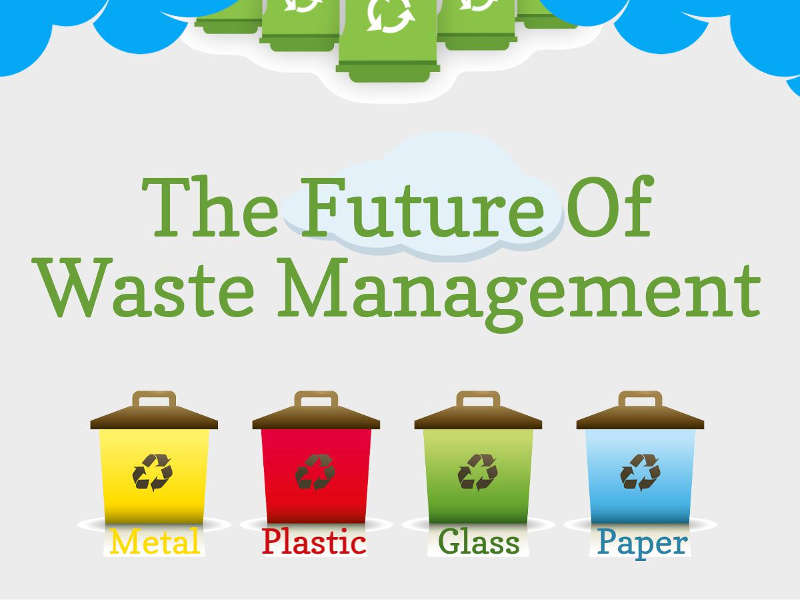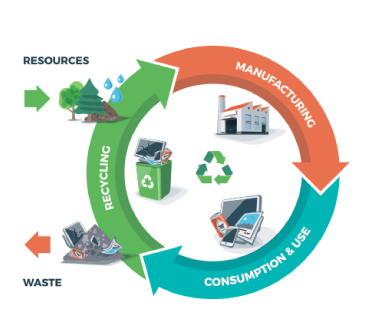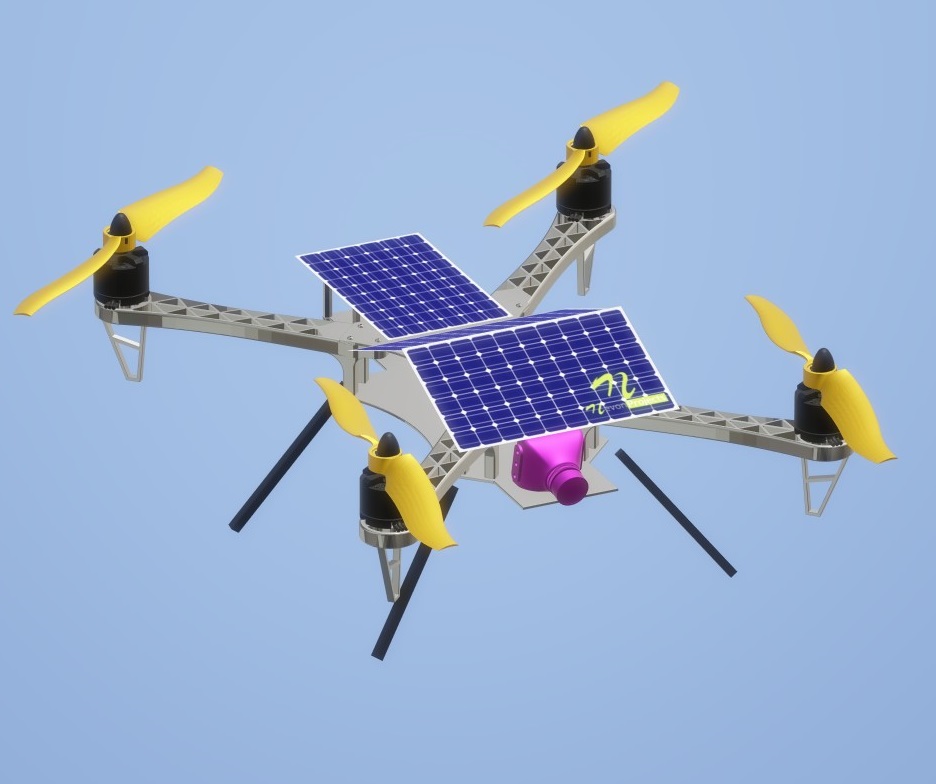Introduction Food waste reduction is a critical issue that both households and restaurants need to address. It not only has a significant impact on the environment but also has economic implications. Wasted food contributes to greenhouse gas emissions and squanders valuable resources such as water and energy. Additionally, the economic cost of food waste is substantial, with households in the United States alone wasting around $161 billion worth of food each year. Likewise, restaurants face financial losses due to food waste. Therefore, implementing effective strategies to reduce food waste is paramount. Historical Background Understanding the historical context of food waste…
Author: jenks2026
Introduction Waste management plays a crucial role in modern society, ensuring the proper disposal and treatment of waste materials to protect the environment and public health. With the growing concerns over the impact of waste on our planet, exploring the future of waste management has become an area of great interest. This article delves into the historical background, key concepts, and current trends in waste management, while discussing the challenges and solutions that pave the way for a sustainable future. Historical Background Waste management practices have evolved significantly throughout history. Each era has contributed to shaping waste management approaches, from…
Introduction In today’s world, the concept of sustainable packaging has gained significant importance. As concerns about the environment continue to rise, it has become crucial to address the issue of waste generated from packaging. Sustainable packaging focuses on minimizing the environmental impact of packaging materials and reducing waste throughout the entire lifecycle of a product. This article will explore the various aspects of sustainable packaging and its relevance in promoting a greener and more sustainable future. Historical Background The history of packaging is closely intertwined with the rise of unsustainable practices. In the past, packaging materials were often designed for…
Introduction The fashion and textile industry has a significant impact on the environment, and as consumer demand continues to grow, addressing its environmental consequences becomes more crucial. Recycling practices have emerged as a crucial solution to mitigate the environmental impact of fashion and textile production. This article explores the importance and relevance of recycling in this industry. Historical Background The fashion and textile industry has a long history, but it was not until recent decades that the environmental implications became apparent. The rise of fast fashion and mass production has led to increased resource consumption, waste generation, and pollution. Early…
Introduction The topic of electronics manufacturers’ commitment to e-waste recycling is of utmost importance in today’s world. With the rapid advancement of technology and the growing demand for electronic devices, the issue of proper disposal and recycling of electronic waste has become increasingly crucial. This article aims to shed light on the relevance and significance of this topic in terms of environmental sustainability and responsible production. Historical Background To understand the current state of electronics manufacturers’ commitment to e-waste recycling, it is essential to delve into the historical background of the industry’s approach. Over the years, the electronics industry has…
Introduction In today’s world, the importance of tracking recycled products cannot be overstated. With the growing concern for environmental sustainability and responsible waste management, it is crucial to have a transparent and efficient system in place to track the journey of recycled products. This is where blockchain technology comes into play. Blockchain, most commonly associated with cryptocurrencies like Bitcoin, has the potential to revolutionize the recycling industry by providing a secure and decentralized platform for tracking recycled products. In this article, we will explore the impact of blockchain in tracking recycled products and its significance in promoting sustainability. Key Concepts…
Introduction Nanotechnology has emerged as a groundbreaking field with immense potential across various industries. In the context of recycling, nanotechnology offers promising solutions to improve efficiency and sustainability. This article explores the applications of nanotechnology in recycling, highlighting its relevance in addressing global environmental challenges. Historical Background Recycling has a long history, but it has faced challenges in achieving optimal efficiency. The introduction and development of nanotechnology have revolutionized the recycling industry, offering innovative approaches to overcome these challenges. Key Concepts and Definitions Nanotechnology involves manipulating matter at the nanoscale to achieve desired properties and functionalities. In the context of…
Introduction Recycling is an essential practice for businesses in today’s world. It contributes to environmental sustainability and offers significant economic advantages. This article delves into the importance of recycling for businesses, explores the economic benefits it brings, and highlights its relevance in the current business landscape. Historical Background Over the years, recycling practices in businesses have evolved significantly. From simple waste reduction initiatives to comprehensive strategies that encompass the entire supply chain, businesses have come a long way. Historical milestones and developments have shaped and propelled the adoption of recycling practices, making it a pivotal aspect of modern business operations.…
Introduction Community recycling programs play a vital role in promoting sustainability and environmental stewardship. These programs involve the collection, sorting, and processing of recyclable materials within a community, with the aim of reducing waste and conserving natural resources. In today’s world, where the impact of climate change and pollution is becoming increasingly evident, community recycling programs have gained significant relevance. They not only contribute to a healthier and cleaner environment but also offer economic benefits and foster community engagement. Historical Background Recycling has a rich history that dates back centuries, but it was not until the emergence of community recycling…
Introduction Renewable Portfolio Standards (RPS) and solar energy are essential for achieving a sustainable energy future. This article aims to provide a comprehensive understanding of RPS policies and the integration of solar energy. Historical Background RPS policies emerged in the 1990s as a means to promote renewable energy generation. States recognized the need to diversify their energy sources and reduce reliance on fossil fuels. Simultaneously, solar energy underwent significant advancements, becoming a cost-effective renewable energy option. Key Concepts and Definitions RPS refers to state-level policies that mandate a certain percentage of energy generation to come from renewable sources. These…
Introduction Solar energy has emerged as a crucial solution in the fight against climate change, and the Clean Power Plan aims to capitalize on its potential. This article explores the world of solar energy and its role in promoting a sustainable future. By understanding the historical background, key concepts, and current trends, readers will gain a comprehensive understanding of this vital topic. Historical Background Solar energy has a rich history dating back thousands of years. Humans have recognized the power of the sun, from the ancient Greeks’ use of magnifying glasses to concentrate sunlight for starting fires to the development…
Introduction Solar energy is a rapidly growing renewable energy source that has garnered significant attention in recent years. With the threat of climate change becoming more imminent, countries around the world have come together to combat this global crisis. The Paris Agreement aims to strengthen the global response to climate change by keeping the global temperature rise well below 2 degrees Celsius above pre-industrial levels. In this article, we will explore the importance of solar energy and its alignment with the goals of the Paris Agreement. Historical Background The development of solar energy can be traced back to the 19th…
Introduction: Solar energy and energy storage regulations have become increasingly important in today’s world. As the demand for renewable energy sources grows, understanding the historical background, key concepts, and main discussion points surrounding these regulations is crucial. This article aims to provide a fully optimized, long-form exploration of solar energy and energy storage regulations, shedding light on government policies, permits, net metering, energy storage standards, and more. Historical Background: Solar energy and energy storage regulations have evolved significantly over time. From the early experiments of solar pioneers to the modern renewable energy revolution, this section delves into the historical context.…
Introduction Solar energy and environmental impact assessments are crucial for shaping a sustainable future. Solar energy is a renewable and clean source of power that has gained significant attention in recent years. At the same time, environmental impact assessments have become essential tools for evaluating and minimizing the potential environmental consequences of various projects. This comprehensive article aims to explore the significance of solar energy and environmental impact assessments in today’s world and shed light on their importance and interesting aspects. Historical Background Solar energy has been harnessed by humans for centuries, from ancient civilizations using solar power for heating…
Introduction Solar textiles, also known as wearable solar technology, have revolutionized the concept of renewable energy generation. This innovative technology integrates solar panels into textiles, allowing users to harness solar energy while wearing clothing or accessories. In today’s society, where sustainability and clean energy are paramount, solar textiles have gained immense relevance and importance. This article explores the historical background, key concepts, main discussion points, case studies, current trends, challenges, and future outlook of solar textiles. Historical Background The history of solar textiles dates back to the 1970s when researchers first began experimenting with photovoltaic cells on fabrics. Over the…
Introduction Solar-powered drones and unmanned aerial vehicles (UAVs) have emerged as a groundbreaking technological advancement in recent years. These devices harness the power of the sun to achieve increased flight time, reduced carbon emissions, and enhanced endurance. With their potential applications spanning across various industries, solar-powered drones and UAVs have captured the attention of researchers, innovators, and businesses alike. Historical Background The history of solar-powered drones and UAVs dates back to the early 1970s when the first solar-powered aircraft completed a successful flight. Since then, significant developments and milestones have paved the way for the evolution of solar-powered drone technology.…
Introduction: Solar-powered water purification systems are revolutionizing access to clean and safe drinking water in various parts of the world. This article aims to explore the concept, history, key concepts, and definitions of solar-powered water purification systems. Furthermore, it will discuss the main discussion points, case studies, current trends, challenges, and controversies associated with this innovative technology. Finally, the article will conclude by summarizing the main points and highlighting the potential future implications and growth of solar-powered water purification systems. Historical Background: Water purification systems have a long history dating back to ancient civilizations. However, the adoption of solar energy…
Introduction Biophilic design and solar integration are two concepts that play a significant role in modern architecture and sustainable living. This article explores the historical background, key concepts, main discussion points, case studies, current trends, challenges, and future outlook of these concepts. Historical Background The concept of biophilic design originated in the 1980s and gained recognition for its ability to improve human well-being and productivity. Notable figures like Edward O. Wilson and Stephen R. Kellert have contributed significantly to the development of biophilic design principles. Solar integration, on the other hand, has a rich history that dates back to ancient…
Introduction Solar energy plays a pivotal role in both art and architecture, offering a sustainable and renewable source of power. This article explores the importance and relevance of solar energy in creative disciplines, providing a brief overview of its content. Historical Background Early civilizations recognized the potential of solar energy in art and architecture, utilizing sunlight to enhance aesthetic appeal and functionality. Over time, solar energy integration in creative disciplines has evolved, with artists and architects finding innovative ways to harness the power of the sun. Key Concepts and Definitions Solar energy refers to the process of harnessing sunlight for…
Introduction Solar-powered transportation innovations have emerged as a promising solution for transitioning to a more sustainable and environmentally-friendly transportation system. By utilizing solar energy, these innovations aim to reduce dependence on fossil fuels, minimize carbon emissions, and promote a cleaner and greener future. This article delves into the historical background, key concepts, and main discussion points surrounding solar-powered transportation, while also exploring case studies, current trends, challenges, and the future outlook of this transformative technology. Historical Background The development of solar-powered transportation dates back to the early 19th century when researchers began exploring the potential of harnessing solar energy for…




















